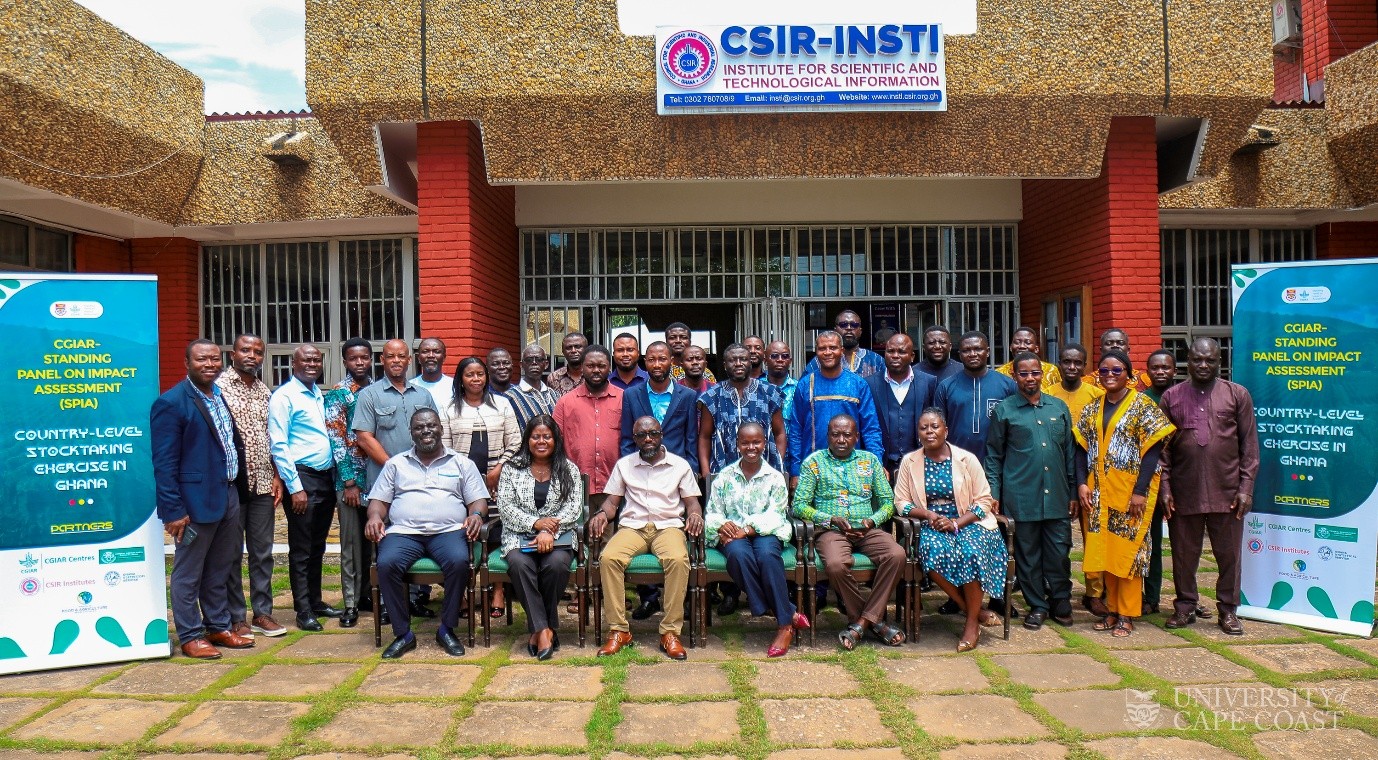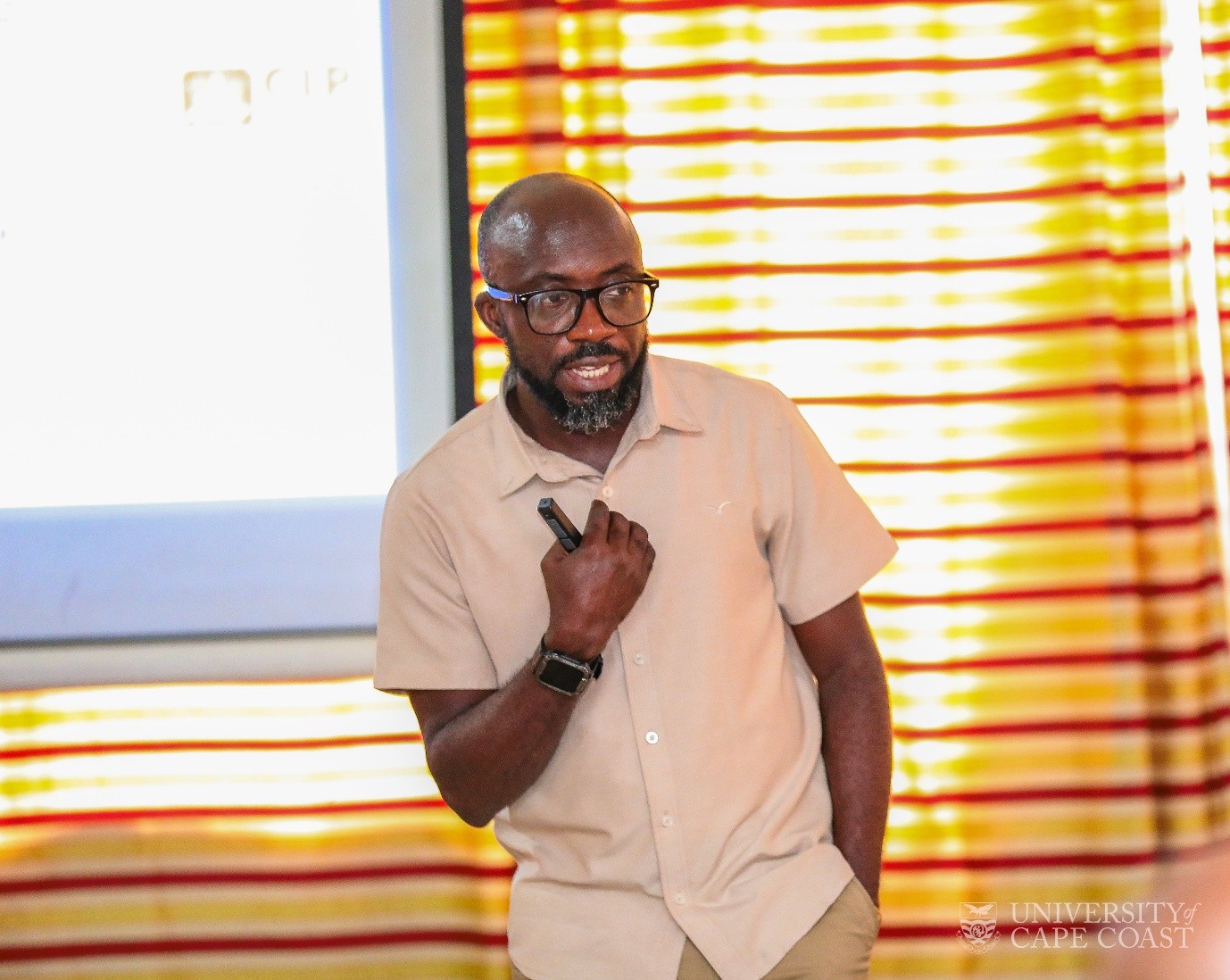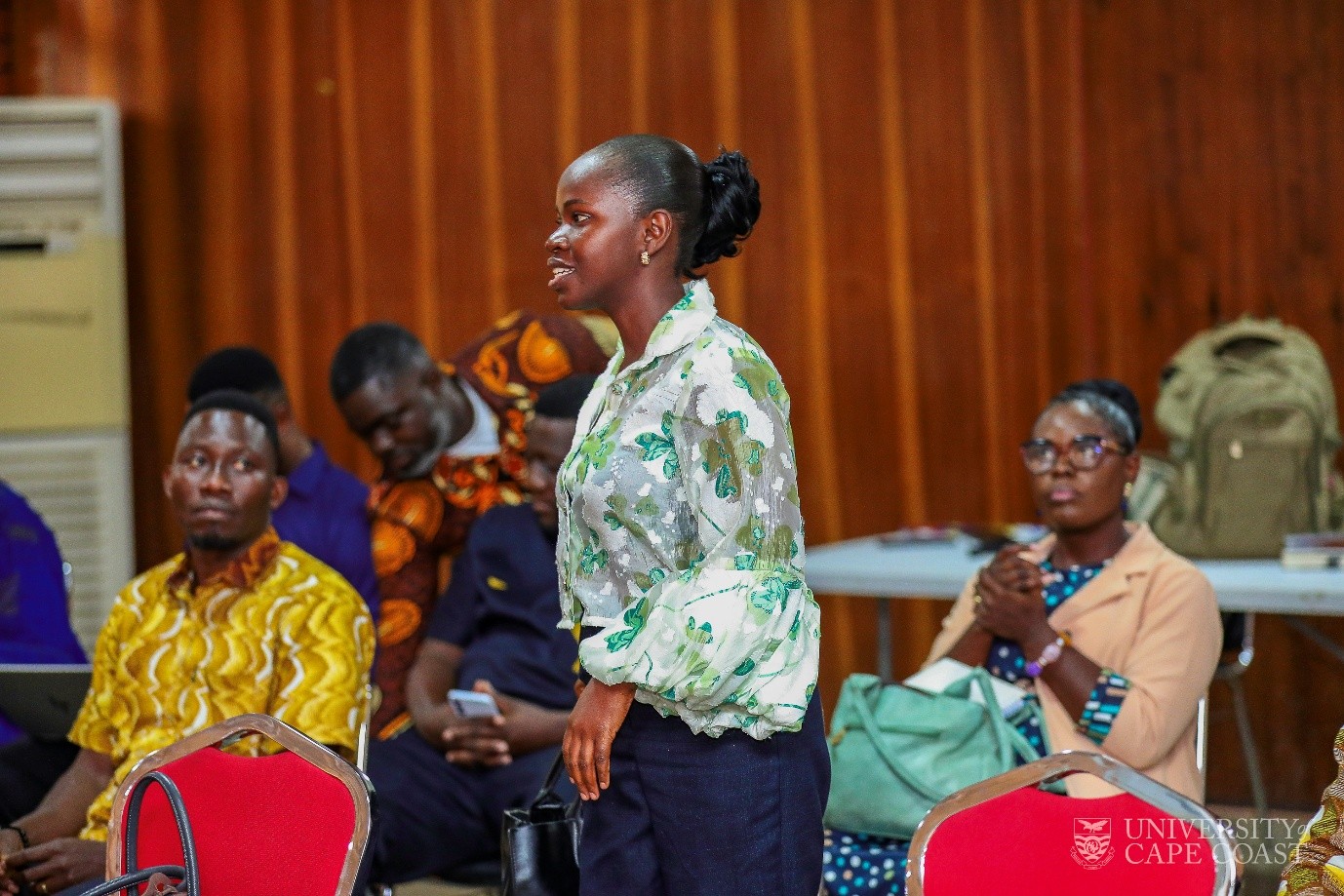The University of Cape Coast (UCC), in partnership with the Council for Scientific and Industrial Research (CSIR) and the International CGIAR Research Centres, is conducting Ghana's first comprehensive stocktaking of agricultural innovations developed over the past 20 years.
The exercise, supported by the CGIAR Standing Panel on Impact Assessment (SPIA), will document the reach and impact of research-based initiatives that have shaped Ghana's Agricultural landscape.
The stocktaking will cover eight categories of agricultural innovations, including genetic materials, agronomic practices, production systems, Natural Resource Management, Digital and Communication tools, Social and institutional innovations, and digital tools.
It will be funded by the SPIA with a research grant of up to USD 250,000 between 2025-2027.
As part of the preparatory grounds for the stocktaking, a stakeholder workshop has been held in Accra, focusing on validating preliminary findings, identifying additional innovations, gathering contextual information, building partnerships, and establishing methodology.
It brought together researchers and institutions such as the Ministry of Food and Agriculture, Ghana Seed Inspection Division, farmer-based organisations, and Agriculture extension services.
The rest are academic researchers, development partners, and non-governmental organizations.
Project lead and head, Department of Crop Science-UCC, Prof. Michael Osei Adu
The Project lead and the Head of the Department of Crop Science-UCC, Prof. Michael Osei Adu, said the stocktaking exercise represents a historic opportunity to systematically document and assess the full breadth of agricultural research contributions that have emanated from CGIAR’s work in Ghana.
“For the first time, we are mapping all agricultural innovations that have been developed through partnerships between international research centres and our national institutions over the past two decades,” Prof. Osei Adu explained.
“Ultimately, this will provide crucial evidence for policymakers on which innovations have actually reached farmers, what impacts they have achieved, and where gaps remain in our agricultural development efforts,” he said.
He emphasized that the exercise goes beyond mere documentation, noting that it will create a robust evidence base to guide future agricultural research investments and policy decisions.
“We want to understand not just what innovations exist, but how they have transformed farming practices, improved livelihoods, and contributed to food security across Ghana’s diverse Agro-ecological zones,” Prof. Adu added.
The stocktaking will examine innovations ranging from improved crop varieties and animal breeds to digital farming tools, climate-smart agricultural practices, and farmer organizational models that have been introduced since 2000.
A participant making an input
He highlighted CSIR’s pivotal role in the exercise through its network of over ten research institutes.
“CSIR has been at the forefront of agricultural innovation in Ghana for decades. This stocktaking will showcase their collaborative achievements with CGIAR centres and demonstrate how research translates into tangible benefits for Ghanaian farmers,” Prof Adu noted.
Representatives from CGIAR centres - including the International Institute of Tropical Agriculture (IITA), International Water Management Institute (IWMI), and International Food Policy Research Institute (IFPRI) - expressed commitment to supporting the exercise with data, expertise, and institutional knowledge.
The project is expected to produce a database of agricultural innovations, an evidence gap map identifying areas needing further research, and policy recommendations based on documented impacts.
Prof. Osei Adu also indicated that the findings will be disseminated through policy briefs, stakeholder workshops, and academic publications to ensure maximum impact on agricultural development strategies.
“This is not just an academic exercise. The evidence we generate will directly inform Ghana’s agricultural policies, help optimize research investments, and ultimately contribute to improved food security and farmer prosperity,” he concluded.
The stakeholder workshop is part of an intensive two-year data collection and analysis phase, which will include field surveys, stakeholder interviews, and validation studies across Ghana’s agricultural regions.
Ghana is one of 12 countries selected globally for SPIA’s Phase 3 country studies, joining nations like Ethiopia, Uganda, Vietnam, Bangladesh, Colombia, and Nigeria. The selection reflects Ghana’s strategic importance for agricultural research and food security in West Africa.
The stocktaking is scheduled for completion by March 2027, with interim findings to be shared with stakeholders throughout the project period.
Source: Documentation and Information Section-UCC



